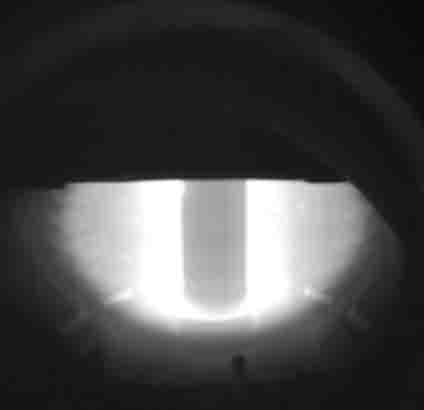It's all systems go for UK’s £55 million fusion energy experiment

After a seven-year build, the UK Atomic Energy Authority (UKAEA)’s £55 million-machine, labelled Mega Amp Spherical Tokamak (MAST) upgrade at Culham Centre for Fusion Energy near Abingdon, has achieved “first plasma” – where all the essential components work together simultaneously.
Fusion energy offers the potential of an abundant, inherently safe low-carbon electricity supply (the raw materials are found in seawater and the Earth’s crust). It involves fusing hydrogen particles in a hot gas known as a ‘plasma’ to unlock large amounts of energy.
But operating fusion technologies requires a careful balancing act of controlling extreme heat, gas and powerful magnetic fields, amongst other complex systems.
Fusion has powered the sun for billions of years, but despite years and years of research, and millions of pounds of investment, to date scientists and engineers have been unable to generate sustained nuclear fusion on Earth, and for years it was joked that fusion was always 50 years away. Now the patient, but mighty investment made not just by the UK, but also other governments across the world could now be about to pay off.
One of the biggest challenges in fusion research has been to extract the amount of excess heat from the plasma. UKAEA’s scientists now plan to test a new exhaust system called the ‘Super-X divertor’ at MAST Upgrade.
This system is designed to channel plasma out of the machine at temperatures low enough for its materials to withstand – meaning that components can last much longer. The approximate tenfold reduction in heat arriving at the internal surfaces of the machine has the potential to be a game-changer for the long-term viability of future fusion power stations.
The project at Culham Centre for Fusion Energy was funded by the Department for Business, Energy & Industrial Strategy.
MAST Upgrade will be the forerunner of the UK’s prototype fusion power plant, Spherical Tokamak for Energy Production (“STEP”), due for completion by 2040. STEP is the UK's ambitious programme to accelerate the delivery of sustainable fusion energy.
STEP – which UKAEA is designing in an initial £220 million programme funded by the UK Government – will be based on MAST Upgrade’s ‘spherical tokamak’ fusion concept. The spherical tokamak could offer a route to a compact fusion power plant. The success of MAST Upgrade is another step along the way to designing future fusion power facilities, which could have an important role as part of a future portfolio of low-carbon energy.
MAST Upgrade will also aid preparations for ITER – the world’s largest science megaproject, now being built in the South of France, which intends to demonstrate fusion power on an industrial scale.
Nuclear energy harnesses the power of atoms. The UK’s nuclear power stations operate nuclear fission, which releases heat energy by splitting atoms. Fusion, on which wide ranging research is being undertaken at Culham, is the combination of two lighter atoms into a larger one. Fusion is what powers the sun and scientists across the world are seeking to achieve nuclear fusion on earth. The aim is for the tokamak reactor to heat plasma up to 100 million degrees Celsius, seven times hotter than the centre of the sun. This is the fusion threshold at which hydrogen atoms can begin to fuse into helium, unleashing non carbon-emitting, virtually limitless energy.














